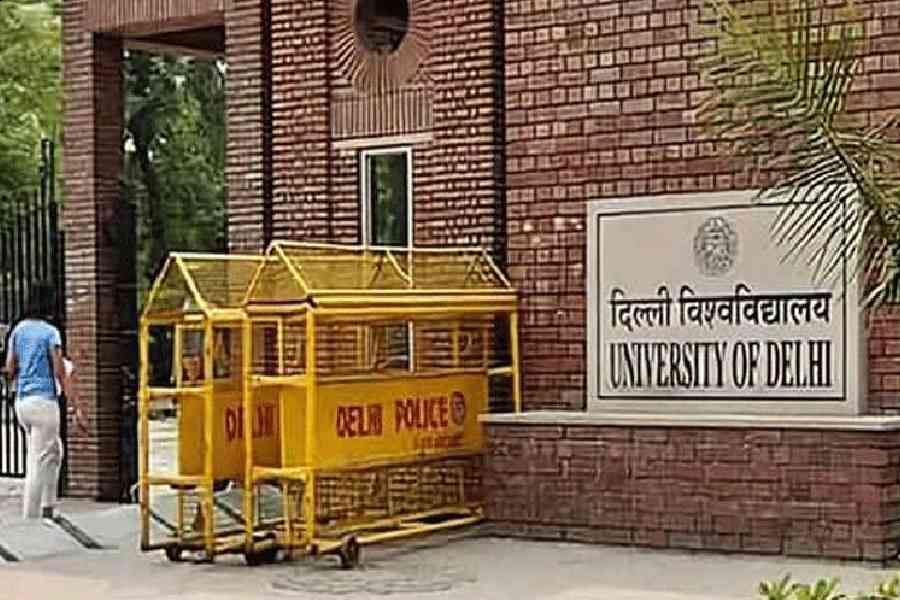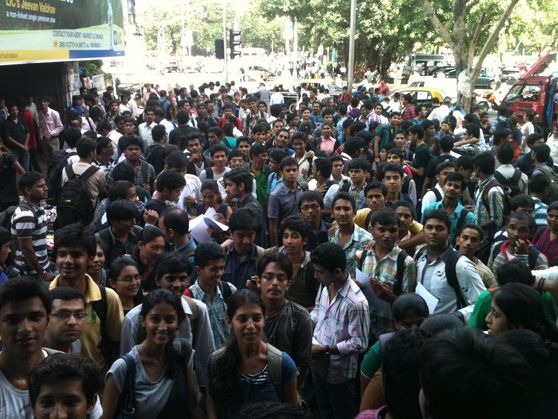Delhi University’s academic council has approved two study centres, one on the Partition and the other on “Hindu studies”, and greenlighted the introduction of a paper on Hindutva icon V.D. Savarkar in the undergraduate political science course.
A senior academic accused the university of taking a “saffron turn” to suit the NDA government’s ideology and feared that the new study centres would generate and legitimise “unfounded” and “toxic” material to further the BJP’s divisive agenda.
The Centre for Independence and Partition Studies and the Centre for Hindu Studies were approved on Friday.
The academic council also decided that undergraduate students of the political science honours course must study a paper on Savarkar’s life and thoughts in the sixth semester.
The council pushed the paper on Mahatma Gandhi’s life and thoughts, which was part of the erstwhile three-year course, to the seventh semester of the current four-year undergraduate programme.
Since multiple exit options are available now, many students might leave with a BA degree after three years, having studied Savarkar but not Gandhi.
Academic council member Chandra Mohan Negi said that many of the members had demanded that Gandhi be taught in the fourth semester — before Savarkar — but vice-chancellor Yogesh Singh had rejected the idea.
Negi said Savarkar had never been part of the undergraduate syllabus before. The new paper’s title refers to him as “Veer Savarkar”.
The Centre for Hindu Studies will offer an MA in Hindu Studies. The NDA government has asked central universities to introduce this course, which presents the caste system as inclusive and seeks to portray Buddhism and Sikhism as branches of Hinduism. Banaras Hindu University was the first to start this course in 2021.
According to the academic council, the Centre for Independence and Partition Studies will focus on heroes and events of the freedom movement that have not yet found a place in official history.
“For this, ‘oral history’ will also be recordedin the voices of thosepeople of that era whohave suffered this tragedy,” a university media release said.
The Sangh parivar, which had little involvement in the independence movement, alleges that official history exaggerates the role that the Congress and its leaders played in the freedom movement.
The release said the centre would also study the causes and effects of the Partition.
Former executive council member Abha Dev Habib said that going by the NDA government’s record on matters of communal harmony, one can only be apprehensive about the objective behind the push for studying the Partition.
“One would have felt reassured if the proposal had come from a government that believes in secular values. But the NDA government’s record on this front is poor,” she said.
“A centre for partition studies is expected to collect data and analyse literature in a scientific manner. It’s a big question whether the centre at DU will do this.”
She added: “There is every possibility that this centre will produce toxic material to further the communal agenda. It will legitimise unfounded stories under the garb of research findings.”
Recently, Delhi University’s syllabus panel recommended dropping the word “Hindu” from the titles of two chapters on B.R. Ambedkar in an elective paper that includes content critical of the Hindu social order and its treatment of women.












